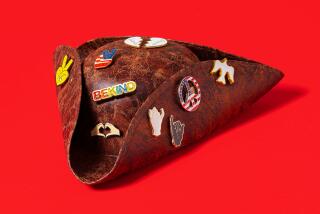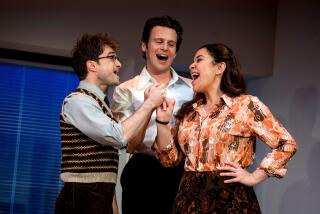NONFICTION - Sept. 7, 1986
- Share via
FRIENDSHIP & LITERATURE: SPIRIT AND FORM by Ronald A. Sharp (Duke University: $19.95; 183 pp.). It has been acknowledged generally by philosophers that friendship is a universal characteristic of human society. People without friendship suffer from sensory deprivation; they become antisocial, even dangerous. The subject of friendship in literature, once a major topic of discussion among the ancients, has diminished to the point where modern encyclopedias do not even mention the subject.
Ronald Sharp addresses himself to the concept of friendship in this petite monograph with an admirable degree of panache. He supports his hypotheses with frequent references to literature, separating his approach into two subcategories: form and gift.
Regarding the recognizable forms of friendship in present day America, Sharp maintains that ritual and formality do not, as is generally perceived, hinder intimacy, but promote and enhance it. In support of his theory, he refers us to numerous instances of the nature of hospitality and of the power of certain formal occasions. The idea of the binding quality of a ritual meal is emphatically reinforced throughout Western literature, from “Beowulf” to Hemingway.
On the subject of gift-giving as an integral part in the making and sealing of friendship, Sharp maintains that this custom elevates those involved in it to a level higher than the actual characters of the parties would ordinarily warrant. In other words, what friends really mean to each other can better be demonstrated by the exchange of gifts than by psychology. Gift exchange takes the form of shared food, secrets, personal items or, in extreme cases, life itself.
Sharp’s treatise delves deeply into all aspects of friendship and the seemingly contradictory feelings that it sometimes incorporates. Suffice it to quote Thoreau, as the author does: “Friends cherish each other’s hopes. They are kind to each other’s dreams.”
More to Read
Sign up for our Book Club newsletter
Get the latest news, events and more from the Los Angeles Times Book Club, and help us get L.A. reading and talking.
You may occasionally receive promotional content from the Los Angeles Times.








